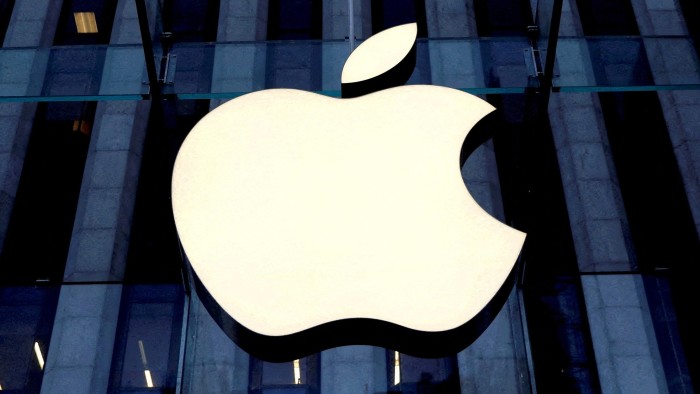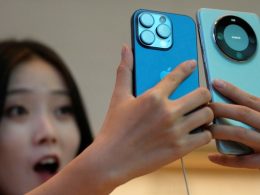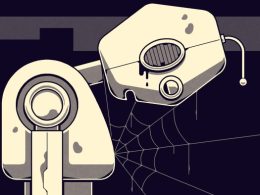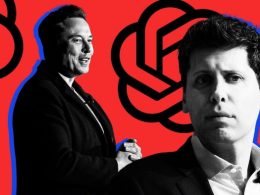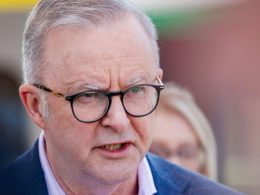Unlock the Editor’s Digest for free
Roula Khalaf, Editor of the FT, selects her favourite stories in this weekly newsletter.
Belgium has started a criminal probe into allegations that Apple has knowingly sourced “blood minerals” from the Democratic Republic of Congo, in what lawyers for the central African country have called a “massive laundering and greenwashing operation”.
In December, the DRC filed criminal complaints in Belgium and France against subsidiaries of the US tech group, alleging they used minerals supplied by armed groups committing atrocities in eastern Congo.
Lawyers acting for DRC said prosecutors in Belgium had last week appointed an investigative judge — who oversees the investigation and is in charge of issuing arrest warrants, wiretaps and raids — to probe the case. They were still awaiting a decision from France, where the process was slower.
“This is the first step which shows that the prosecutor takes the case very seriously,” said Christophe Marchand, the lawyer who prepared the case in Belgium, which colonised Congo with catastrophic consequences in the early 20th century.
The Brussels prosecutors’ office did not respond to a request for comment. Apple declined to comment for this story. It has previously said it “strongly disputes” the claims and was “deeply committed to responsible sourcing of minerals” such as coltan, a critical mineral used in its iPhones and other electronics, of which more than half of global deposits are in Congo.
The criminal complaint alleges that Apple buys tantalum, an ore extracted from coltan, as well as tin, tungsten and gold — the so-called 3TG minerals — from mines whose profits stoke war in eastern DRC and promote child labour and environmental degradation. Millions of people have been displaced in fighting in which rape and killing of civilians is common.
Many of the minerals are certified to have come from mines in non-conflict areas or from Rwanda. But the complaint alleges that the so-called “bagging and tagging” certification process on which Apple and other electronics giants rely is deeply flawed and that minerals labelled as coming from Rwanda are, in fact, sourced from Congolese mines.
“There is no tech company on Earth that doesn’t know that everything purchased from Rwanda is 90 per cent sure to be Congolese,” Robert Amsterdam, whose law firm is representing DRC, told the Financial Times.
In a report this month, the UN said Rwandan-backed rebels in eastern DRC “fraudulently exported” at least 150 metric tons of coltan to Rwanda last year, leading to what it called “the largest contamination” of the region’s mineral supply chain on record.
M23 rebels — which the UN, US, EU and Congo say are backed by Rwanda — had, the report stated, gained control over many of the most important mines, “establishing a parallel administration controlling mining activities, trade, transport and the taxation of minerals produced”.
Kigali has consistently denied backing M23 rebels or benefiting from what Kinshasa claims is the $1bn a year it loses from smuggled minerals.
In a March 2024 filing with the Securities and Exchange Commission, Apple said: “We found no reasonable basis for concluding that any of the smelters or refiners of 3TG determined to be in our supply chain . . . directly or indirectly financed or benefited armed groups in the DRC.”
But in December, Apple said it was concerned that it “was no longer possible for independent auditors or industry certification mechanisms to perform the due diligence required to meet our high standards” and had informed its suppliers to suspend sourcing 3TG metals from either DRC or Rwanda.
Amsterdam characterised the new sourcing decision as a smoking gun. “It’s an admission that the supply chains are basically infiltrated with bogus minerals,” he said.
Apple has sought to increase use of recycled minerals in its products, saying it aimed to source 100 per cent recycled cobalt for batteries by this year.
Separately, lawyers acting for DRC have sought to draw the EU into the fight against Apple by sending a letter to Ursula von der Leyen, president of the European Commission, depicting as a “farce” the bloc’s agreement with Rwanda, signed last February, on sustainable sourcing of critical minerals.
“The EU has signed an MOU with Rwanda on developing their 3TG mineral programmes when anybody with a high school education knows Rwanda doesn’t have the minerals,” Amsterdam said. “It isn’t just Apple but the EU itself that is engaged in this sophistry.”
A spokesperson for the commission said it was “seriously committed to ensuring transparency and traceability of the critical raw materials both on the bilateral and multinational level”.
One of the key aims of its agreement with Rwanda was “to reinforce the fight against illegal trafficking of minerals”, they added.
Source link





